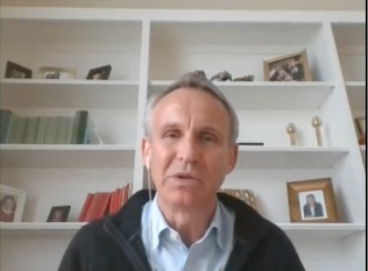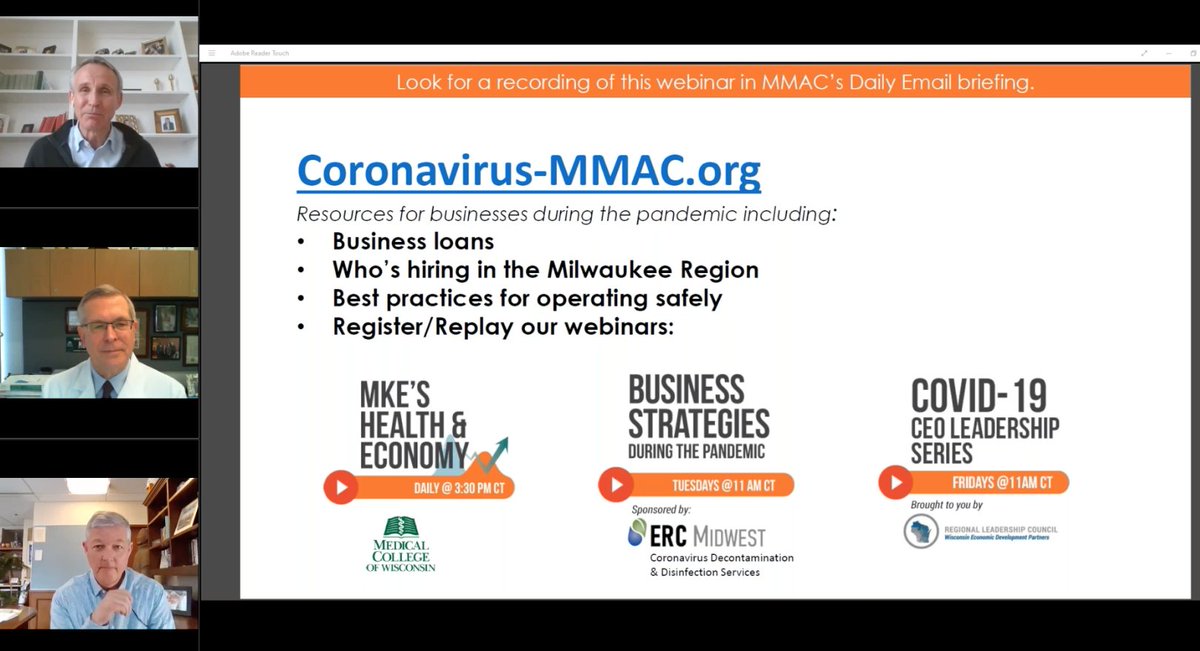<ECONOMIC STRATEGY THREAD>
Metropolitan Milwaukee Association of Commerce looks at strategies for the future of workforce in the era of COVID-19.
Register here: https://register.gotowebinar.com/register/5051604324925335563">https://register.gotowebinar.com/register/...
Metropolitan Milwaukee Association of Commerce looks at strategies for the future of workforce in the era of COVID-19.
Register here: https://register.gotowebinar.com/register/5051604324925335563">https://register.gotowebinar.com/register/...
Dr. John Raymond: Good news, Wisconsin is flattening the curve significantly - but if we let up on measures, it could come back quickly.
Only once we& #39;ve got these policies mastered that we can decide on the future of the economy.
Only once we& #39;ve got these policies mastered that we can decide on the future of the economy.
Dr. Raymond: You want to "re-open" the economy? We need to get cases down, TESTING, TESTING, TESTING, and PPE and more.
We& #39;re nowhere close yet. Gotta do this before we can figure out what& #39;s next for the economy.
We& #39;re nowhere close yet. Gotta do this before we can figure out what& #39;s next for the economy.
Dr. Raymond: You want to restart the economy? Here& #39;s a checklist - realize that COVID-19 will be *stalking the human race* for a while, and make policy based on solid data and science.
Manpower CEO Jonas Prising: We started looking at the strategic impact of COVID-19 in January 2019, starting with the situation rapidly evolving in Asia Pacific.
PRISING: We first saw the obvious effect on Asian tourism and hospitality, and forecast it impacting more industries, reverberating out geographically and economically.
PRISING: Manpower had operational plans ready to go for COVID-19 because our organizational history with SARS, H1N1, and the Fukushima tsunami. We are global and knew how to react to an emergency of that type at that scale.
(EG Note: I want to really avoid U.S. politics here, but PLEASE notice that this is not the Executive Branch of the United States, and they had early warning, intelligence, and filed operational plans.
SO DOES THE U.S. GOVERNMENT. Normally. Conclude what you will. https://abs.twimg.com/emoji/v2/... draggable="false" alt="😠" title="Angry face" aria-label="Emoji: Angry face">)
https://abs.twimg.com/emoji/v2/... draggable="false" alt="😠" title="Angry face" aria-label="Emoji: Angry face">)
SO DOES THE U.S. GOVERNMENT. Normally. Conclude what you will.
PRISING: We rolled out proactive plans first to the Asian regions of our company, learned, and then moved what we learned out to responses in Europe and North America.
PRISING: Lockdowns have been different in a variety of countries. South Korea is only locked down in one area, but it& #39;s flattened the curve. France and Italy are locked tight.
My colleagues in Sweden say the lockdowns are informal, but the people obey gov& #39;t advice.
My colleagues in Sweden say the lockdowns are informal, but the people obey gov& #39;t advice.
PRISING: Cultural aspects are huge here. Sweden made suggestions and people just did the right thing. Italy locked down hard and...people ignored it. So policies need to reflect local customs.
Either way, companies - especially restaurants - are taking a massive hit.
Either way, companies - especially restaurants - are taking a massive hit.
Boston is obeying its own cultural norms  https://abs.twimg.com/emoji/v2/... draggable="false" alt="😂" title="Face with tears of joy" aria-label="Emoji: Face with tears of joy">
https://abs.twimg.com/emoji/v2/... draggable="false" alt="😂" title="Face with tears of joy" aria-label="Emoji: Face with tears of joy">
PRISING: With companies opening back up, the practices of physical distancing are changing how work gets done.
You might need to have multiple shifts to physically spread workers out to do the same jobs.
You might need to have multiple shifts to physically spread workers out to do the same jobs.
PRISING: In Wisconsin, we rank highly for government, business, and academia working together to optimize policy that will allow the economy to be resilient in this crisis and to get onto a new track as we "come back."
PRISING: WE WILL NOT BE GOING BACK TO WORK THE WAY IT WAS BEFORE.
Just like in our personal lives, our behaviors will be different as we emerge slowly from the crisis phase of COVID-19.
Just like in our personal lives, our behaviors will be different as we emerge slowly from the crisis phase of COVID-19.
PRISING: We will need PPE for workers, new policies, staggered shifts, and customized approaches to bring different economic activities back online.
Q: Will business be back open by Memorial Day?
PRISING: That will depend on the scientific data. How did the religious holiday weekend impact us? How did the election? That will guide how we emerge - reliable scientific data.
PRISING: That will depend on the scientific data. How did the religious holiday weekend impact us? How did the election? That will guide how we emerge - reliable scientific data.
PRISING: How we rollout the return to business will depend on the incidence of flare-ups in COVID-19 in the future.
*Government lockdowns are a blunt tool.* Each business has different needs and solutions. It& #39;s good to start with, but we should tailor policies to 1-size-fits-1.
*Government lockdowns are a blunt tool.* Each business has different needs and solutions. It& #39;s good to start with, but we should tailor policies to 1-size-fits-1.
Q: Given the lack of testing, how can we be sure of the data to re-open the economy?
RAYMOND: Because of the inaccuracy, we can look more at the trend rather than the exact numbers. What we& #39;ve done so far has worked and the data has reflected that. We should refine that.
RAYMOND: Because of the inaccuracy, we can look more at the trend rather than the exact numbers. What we& #39;ve done so far has worked and the data has reflected that. We should refine that.
Q: How important are N95 masks in the return?
PRISING: France has required protection for workers to safely get back to work. It may not be the difference between N95 and surgical masks, but the right PPE.
PRISING: France has required protection for workers to safely get back to work. It may not be the difference between N95 and surgical masks, but the right PPE.
PRISING: France& #39;s policies have worked, but they& #39;re very severe. There are serious fines for disobeying the measures, thousands of dollars, so people are afraid to return to work.
Wearing masks and showing that you take COVID-19 seriously may bring back confidence to the public.
Wearing masks and showing that you take COVID-19 seriously may bring back confidence to the public.
Q: UV light - could it be effective in sanitizing against COVID-19?
RAYMOND: I& #39;m not an expert, but there& #39;s signs that it could be effective.
RAYMOND: I& #39;m not an expert, but there& #39;s signs that it could be effective.
Q: We probably need local data. If we have Wisconsin data, how soon could we get Wisconsin businesses back online?
RAYMOND: This is a new disease, so we need to construct and refine predictive modeling. We& #39;ll be partnering with local universities to optimize this.
RAYMOND: This is a new disease, so we need to construct and refine predictive modeling. We& #39;ll be partnering with local universities to optimize this.
PRISING: We need to be *disciplined* about policies. Even Singapore, the gold standard, is loosening lockdowns and seeing flareups of COVID-19 after successes.
We& #39;re going to need to customize by regions, cities/towns, economic sectors, companies to get things open safely.
We& #39;re going to need to customize by regions, cities/towns, economic sectors, companies to get things open safely.
PRISING: Making sure consumers are confident about buying is essential because 70% of the Western economy is from consumer purchases. Our policies need to maximize how to make consumers *feel* safe about returning to their economic behaviors.
Q: When will air travel get back open?
RAYMOND: Well, that& #39;s tough because air travel is definitely a vector for the disease. We& #39;re very connected, even if we don& #39;t realize it, nationally and globally.
PRISING: We need to separate travel as essential versus non-essential.
RAYMOND: Well, that& #39;s tough because air travel is definitely a vector for the disease. We& #39;re very connected, even if we don& #39;t realize it, nationally and globally.
PRISING: We need to separate travel as essential versus non-essential.
PRISING: We need to get used to webinars and other technologies. While I& #39;d prefer to have this meeting in person, it will be a while before we can do so like we used to.
Q: How is COVID-19 impacting the workforce trends from before that were already changing the future?
PRISING: We were already working on remote working, this will accelerate. But what& #39;s really going to change is "near-shoring," moving more work closer to home.
PRISING: We were already working on remote working, this will accelerate. But what& #39;s really going to change is "near-shoring," moving more work closer to home.
PRISING: We will be securing the supply chain going forward. China has been the center of a lot of manufacturing; *that may change.*
We will likely bring more manufacturing near-shore or onshore going forward.
We will likely bring more manufacturing near-shore or onshore going forward.
Q: How will this affect the return to schools, elementary, high school, and university?
RAYMOND: We& #39;ll be experimenting as to what works.
PRISING: Countries are already starting that shift in different ways. This will affect work when family members fall ill.
RAYMOND: We& #39;ll be experimenting as to what works.
PRISING: Countries are already starting that shift in different ways. This will affect work when family members fall ill.
Final thoughts:
RAYMOND: I see glimmers of hope, but it& #39;s up to all of us to take responsibility to get it right.
PRISING: We as businesses have a disproportionate responsibility as leaders in how we communicate to our employees.
RAYMOND: I see glimmers of hope, but it& #39;s up to all of us to take responsibility to get it right.
PRISING: We as businesses have a disproportionate responsibility as leaders in how we communicate to our employees.
PRISING: I like the idea of being in control of my own destiny as a business. We need to apply scientific data and evolving practices to get back to work quickly and safely while leading our communities.
</THREAD>
(EG Note: See? There are leaders out there. https://abs.twimg.com/emoji/v2/... draggable="false" alt="😎" title="Smiling face with sunglasses" aria-label="Emoji: Smiling face with sunglasses">)
https://abs.twimg.com/emoji/v2/... draggable="false" alt="😎" title="Smiling face with sunglasses" aria-label="Emoji: Smiling face with sunglasses">)
</THREAD>
(EG Note: See? There are leaders out there.

 Read on Twitter
Read on Twitter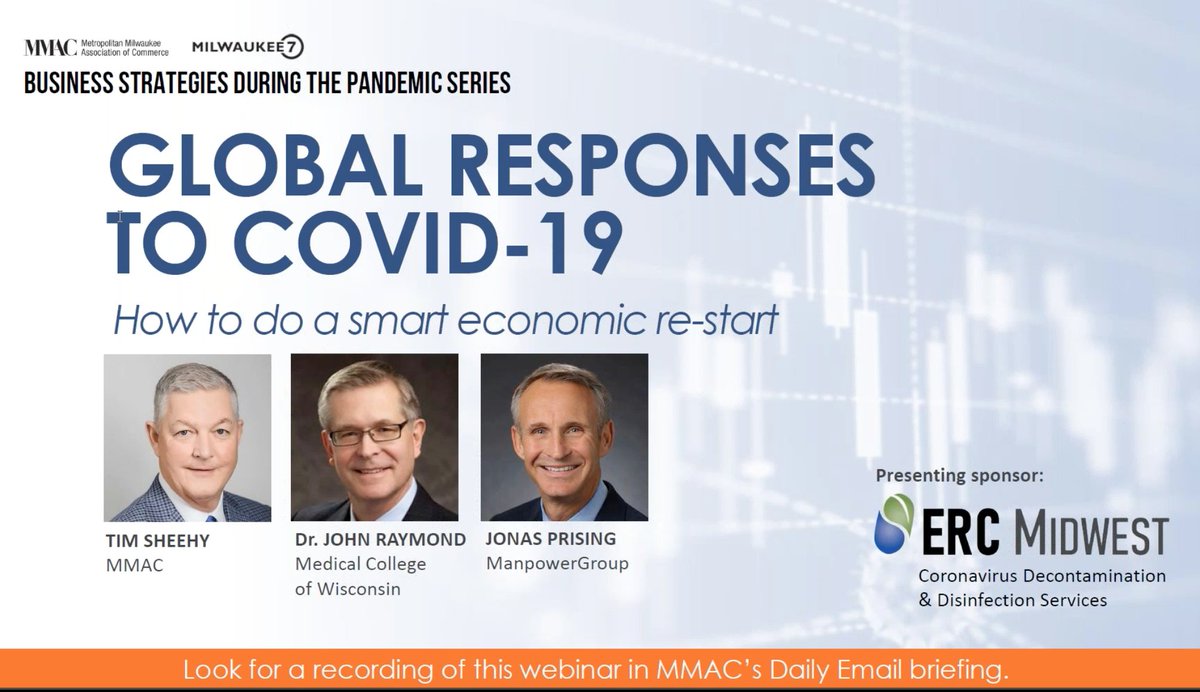
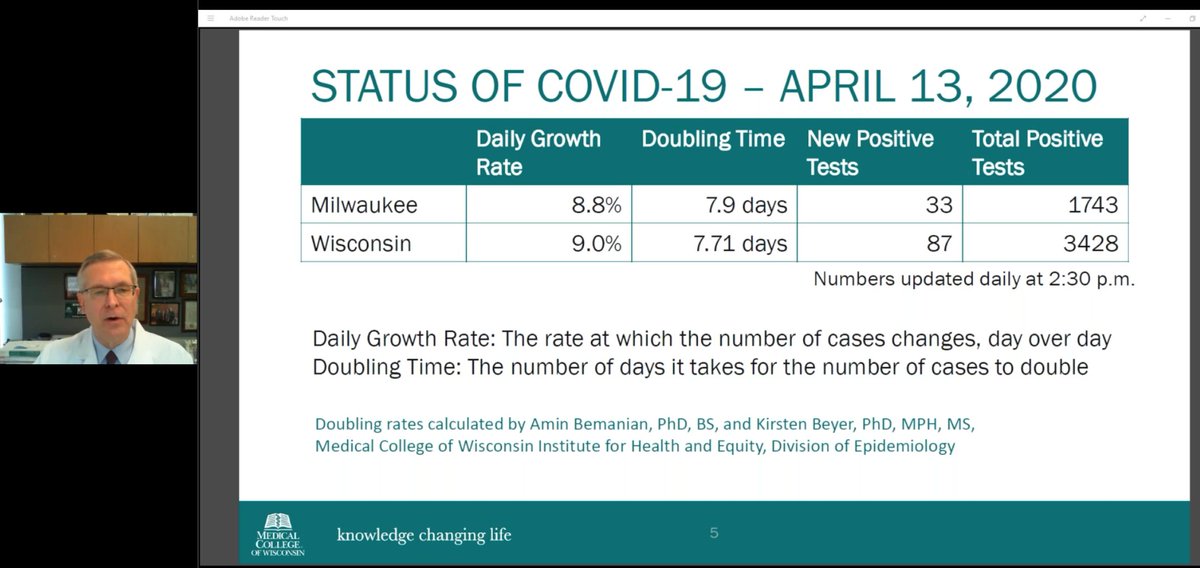
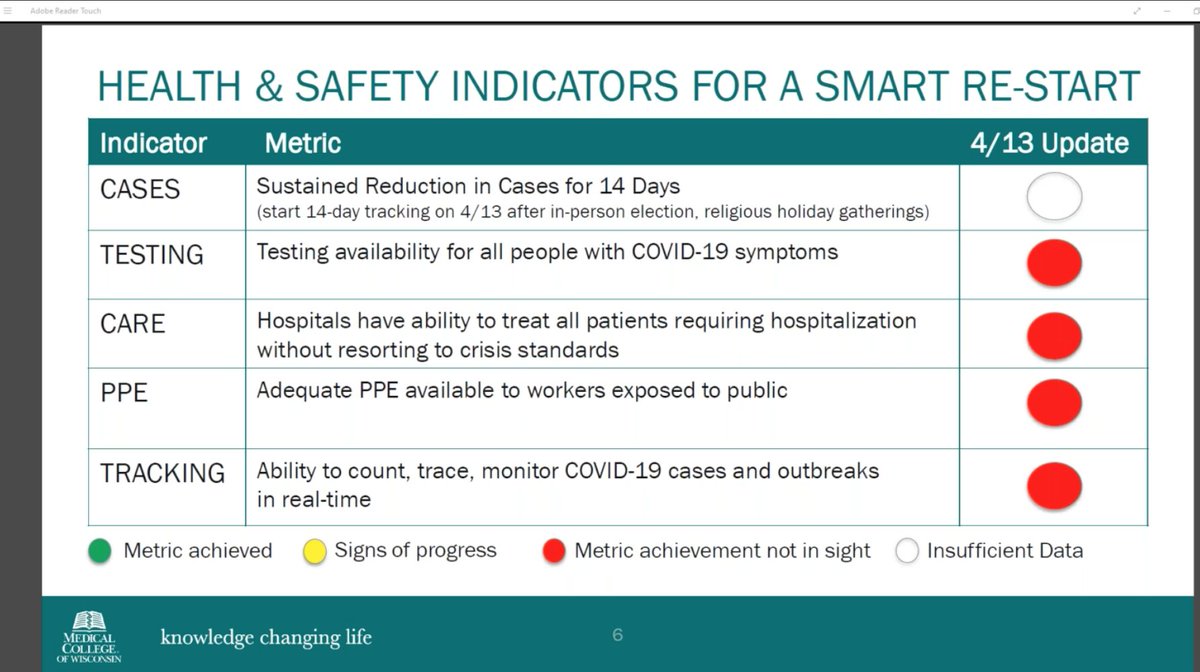
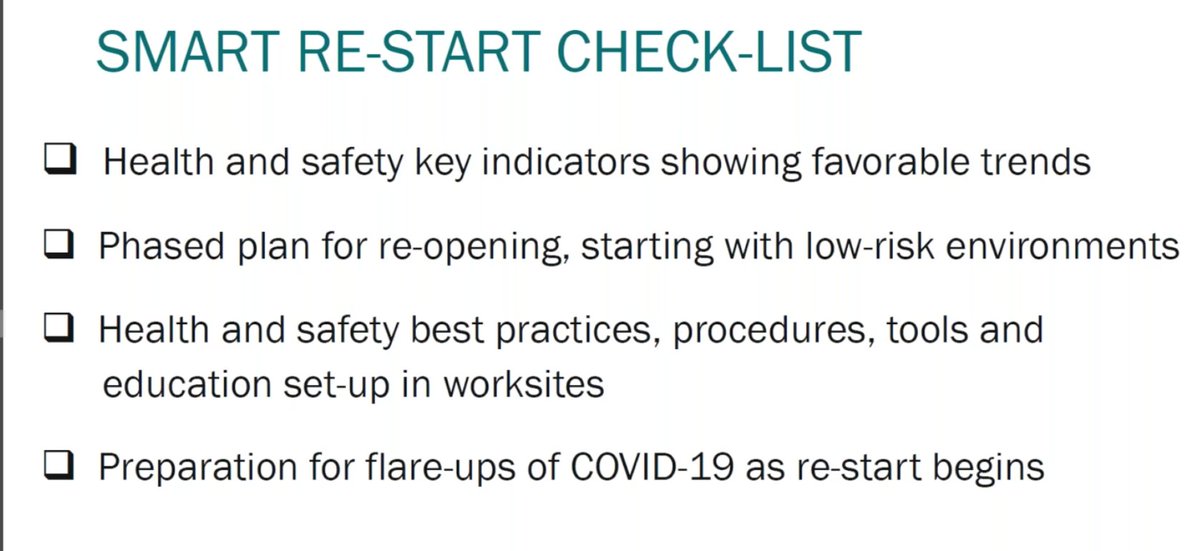
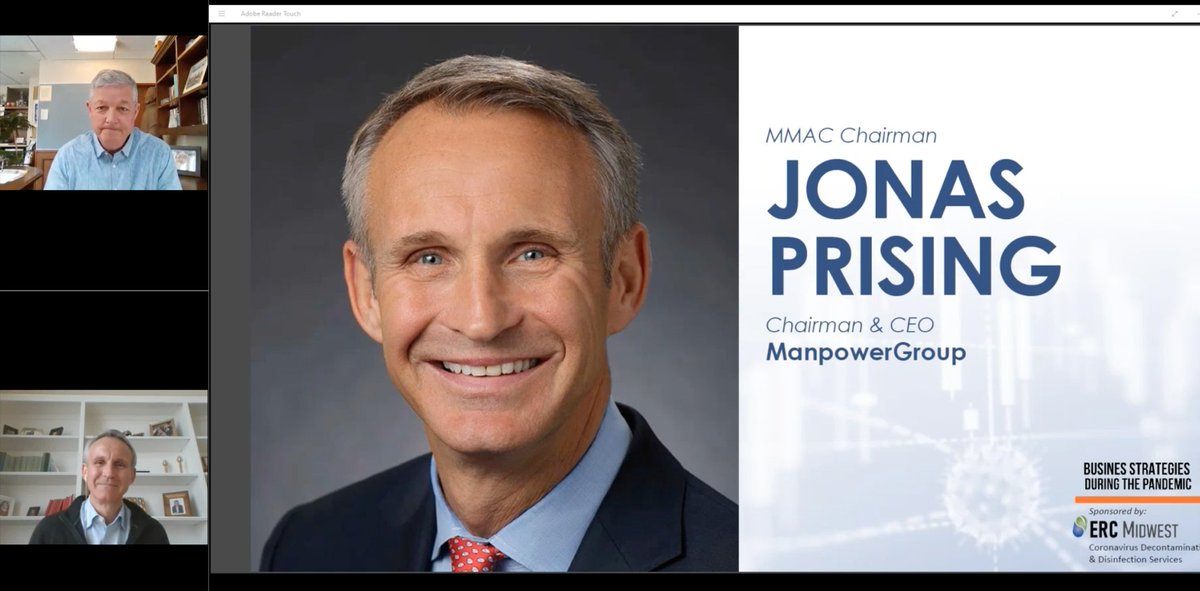
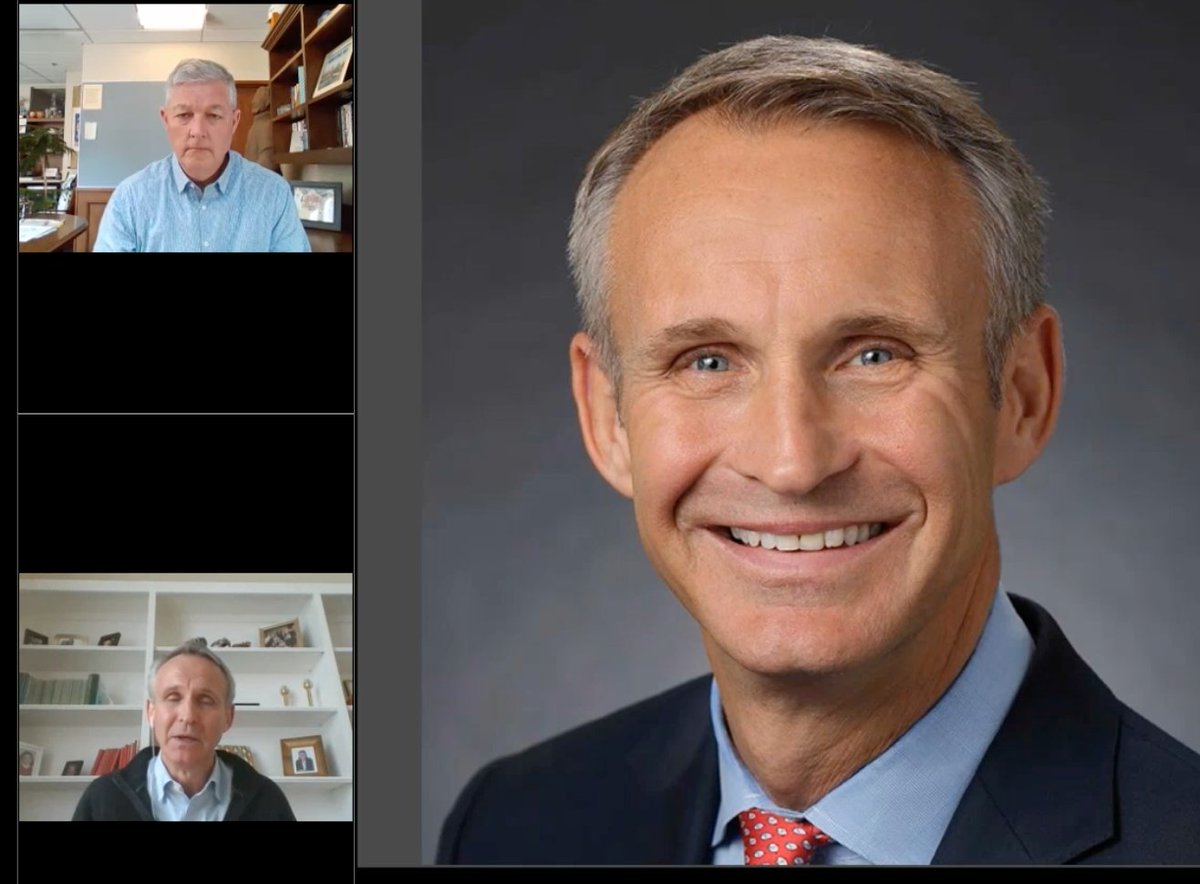
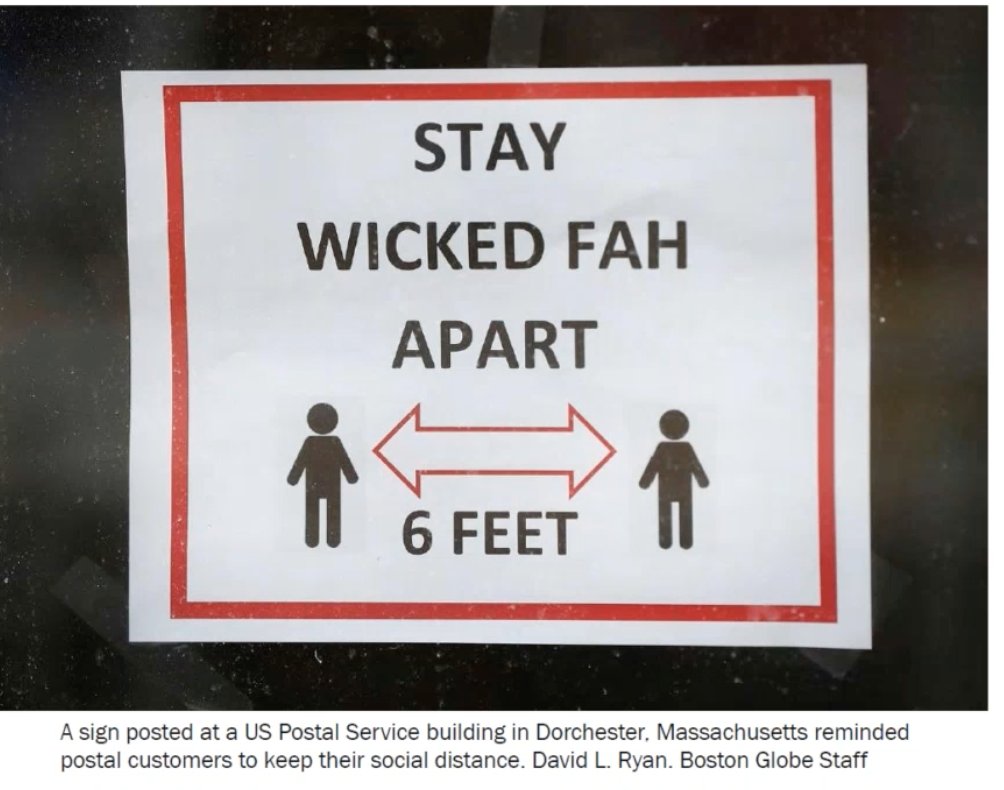 " title="Boston is obeying its own cultural norms https://abs.twimg.com/emoji/v2/... draggable="false" alt="😂" title="Face with tears of joy" aria-label="Emoji: Face with tears of joy">" class="img-responsive" style="max-width:100%;"/>
" title="Boston is obeying its own cultural norms https://abs.twimg.com/emoji/v2/... draggable="false" alt="😂" title="Face with tears of joy" aria-label="Emoji: Face with tears of joy">" class="img-responsive" style="max-width:100%;"/>
